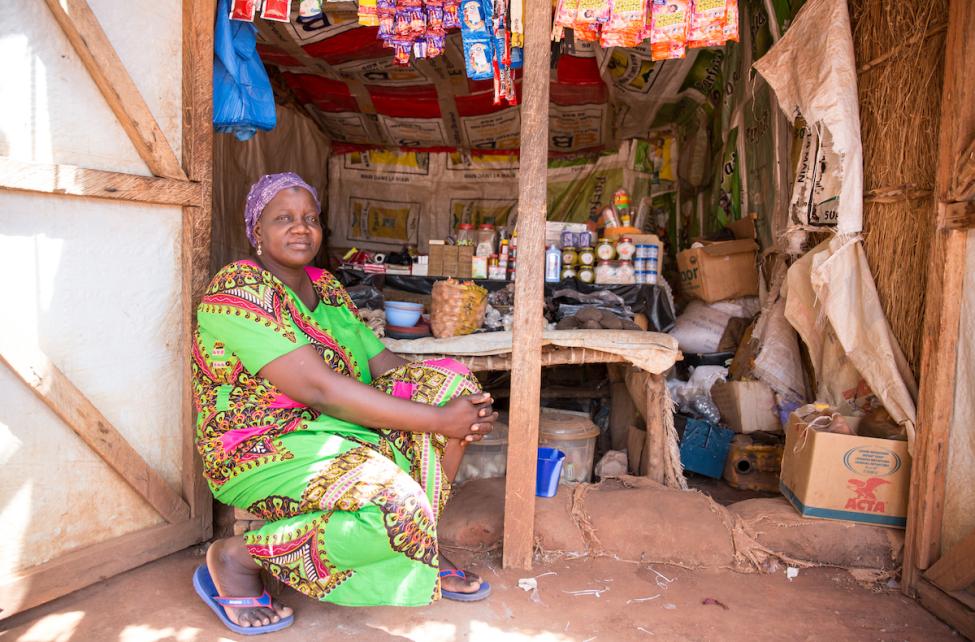-
Who we are
WHO WE AREThe International Organization for Migration (IOM) is part of the United Nations System as the leading inter-governmental organization promoting humane and orderly migration for the benefit of all. IOM has had a presence in West and Central Africa since 1998.
About
About
IOM Global
IOM Global
-
Our Work
Our WorkAs the leading inter-governmental organization promoting humane and orderly migration, IOM plays a key role to support the achievement of the 2030 Agenda through different areas of intervention that connect both humanitarian assistance and sustainable development. Across West and Central Africa, IOM provides a comprehensive response to the humanitarian needs of migrants, internally displaced persons, returnees and host communities.
Cross-cutting (Global)
Cross-cutting (Global)
- Where we work
- Take Action
- Data and Resources
- 2030 Agenda
The International Day of Family Remittances, observed every year on 16 June, recognizes the important contributions of migrant workers to their families and communities at home.
In Chad, the International Organization for Migration (IOM) supports the Government of Chad in diaspora engagement by fostering a greater understanding of the development potential of remittances in the country.
In a recent study, IOM surveyed over 800 households in N’djamena, Chad’s capital city, to understand how these used remittances received from their family members living abroad. This was the first time such a study was conducted in Chad, one of the largest countries in Central Africa and a hub for migration in the region.
Here are five things you should know remittances in Chad:
1) Remittances improve people’s living conditions
The study revealed that the average amount received from the diaspora exceeds the average monthly salary. Among the households receiving remittances sureyed in N’djamena, the average amount received from the diaspora is 125,302 CFA francs (131 USD) per month which is more than the average monthly income is 113,807 CFA francs (119 USD) according to national statistics. By doubling a household’s income – or providing an income where there was none, remittances thus make an important difference in the quality of people’s lives.
2) Most remittances are primarily used for consumption purposes
When Chadian diaspora members send money back home, it is mainly spent to cover general expenses related to the functioning of the household followed by food, social reasons, health, and education. Only 10% of the respondents declared using remittances for investment purposes. Remittances are thus a private source of capital that helps households out of poverty and contributes to improving their living conditions.
3) Remittances have a transformative potential for households
According to the study, remittances-receiving households in N’djamena enjoy better living conditions than those not receiving any. 87% of the households receiving remittances interviewed have a direct connection to the electrical grid compared to compared to 80% of households not receiving remittances. Remittances receiving households are also mostly self-owned and tend to have more access to a mobile phone and a bank account.
4) Diasporas contribute to the realization of the Sustainable Development Goals through remittances
Most households interviewed as part of the survey recognized the importance of remittances in their budgets, with 27% specifically stating that remittances are necessary for the household’s survival. Thus, through their contributions, diaspora members help reduce poverty (SDG 1), increase access to food (SDG 2), education (SDG 4), drive financial inclusion and reduce inequalities (SDG 10).
5) Remittances empower women-led households
The results of the study show that female-headed households receive on average more money from the diaspora than male-headed households. They also receive them more frequently. Furthermore, in female-headed households, women receiving remittances have more decision-making power over how the funds will be used, than in male-headed households where the use of the remittances is likely to be decided by the sender.
Read the full study report here.
The study on the use of remittances by households in Chad was supported by the IOM Development Fund. For more information, please contact François-Xavier Ada Affana, Communications Officer. Email: fadaaffana@iom.int.

